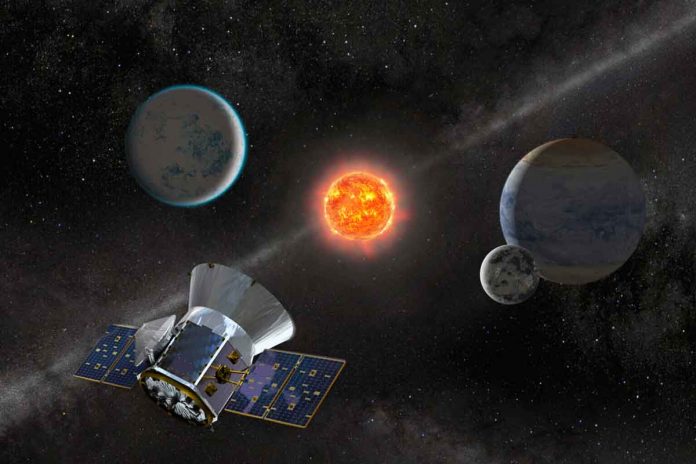Astronomers made the discovery of a lifetime. It will help to answer burning questions on the evolution of stars. Astronomers generated a new model. It improved the way stars are measured in 2017.
The model helps predicting the types of planets orbiting distant stars. They are called exoplanets. It has been used to identify the characteristics of more than 100 stars. They were found by the TESS space telescope and 1,000s of others. But nothing prepared astronomers for what this new binary star system could tell them about our universe.
Astronomers explained how several key ingredients make this binary star system incredibly rare. Binary star systems are not uncommon among the cosmos. One uncommon trait of this one is its orientation. The stars eclipse each other, when viewed from Earth. Astronomers calculated important qualities of the two stars more easily.
Stars can change size and luminosity in a process called pulsating. Scientists studied these pulsations. These allowed them to probe the inner workings of stars. It is similar to Earth scientists using earthquake vibrations to study the Earth’s internal structure. Two rare types of stellar pulsating exist. They provide a different, complementary view of stellar interiors. Scientists found one of the stars in this binary star system exhibits a hybrid of both.
This unique star has a strong magnetic field. It is uncommon for a hybrid pulsating star. It could be a key missing ingredient in current theories for understanding the earliest stages of stellar evolution.
Astronomers received help from the Frist Center for Autism and Innovation. This organisation works to understand and promote neurodiverse talents. The study has been published in The Astrophysical Journal.

